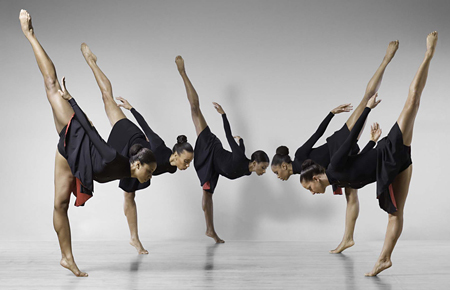Crowd-funding Web site Kickstarter reignited the debate over whether public funds should be used to fund the arts when one of the site’s cofounders told a reporter Kickstarter would probably distribute more money in 2012 than the National Endowment for the Arts.
In a February interview with Talking Points Memo, Kickstarter cofounder Yancey Strickler told reporter Carl Franzen the Web site he cofounded with two partners will distribute more than $150 million to various projects in 2012. The 2012 budget for the NEA is $146 million.
“It is probable Kickstarter will distribute more money this year than the NEA,” said Strickler.
Strickler’s revelation indicates Web sites such as Kickstarter render the NEA and state arts programs unnecessary, according to Sheldon Richman, editor of The Freeman, a magazine published by the Foundation for Economic Education, a free-market, nonprofit think tank. He says the arts better serve the public when patrons can target directly the projects they wish to see fulfilled.
Inspirational, Hayekian
Kickstarter is one of many crowd-funding sites that enable members and groups of the creative community to post information about their prospective projects. Private patrons comb the crowd-funding sites and donate to the projects they see as most interesting.
According to the Securities and Exchange Commission, all monies are to be considered donations rather than an investment in the artists’ work. Artists promoting their work online at the crowd-funding sites, however, may offer their patrons nonmonetary gifts, including copies of compact discs or books signed by the artist, for example.
“It is simply outrageous that the taxpayers are compelled to support artists,” said Sheldon Richman, editor of The Freeman, a magazine published by the Foundation for Economic Education, a free-market, nonprofit think tank. “Artistic freedom is embedded in a broader concept of freedom that includes the right to spend one’s own money as one wishes, whether on ‘the arts’ or not. Private funding is not only morally superior to coerced funding, it is also better because it enables donors to direct their resources to the artists of their, not some bureaucrat’s, choice.”
Michael LaFaive, director of fiscal policy at the free-market, Michigan-based Mackinac Center for Public Policy, agrees, saying “Crowd sourcing is both inspirational and perfectly Hayekian,” referring to the Austrian free-market economist and Nobel laureate Friedrich Hayek. “Everyone can be their own patron—their own Medici, so to speak—and voluntary sponsor that which inspires their own heart or head.”
Creation and Access
In response to Franzen’s article, NEA Spokesperson Victoria Hutter wrote in an email to TPM: “The NEA and Kickstarter exist to fund different art of the arts ecology in this country, and in order for the sector to thrive, we need both.”
Clay Johnson, cofounder of Blue State Digital, the firm that built and managed Barack Obama’s 2008 online campaign, disputed Strickler’s claims in an Information Digest blog post: “Much of the NEA’s money is spent on state and regional partnerships making sure that art happens in [areas such as] North Dakota. Kickstarter’s funded $40,000 in the state since 2009. In 2011, the NEA gave $764,000 (what looks to be about the minimum for the NEA) to its state partner, North Dakota Council on the Arts there,” he wrote.
Johnson continued: “So if we compare these kinds of grants – grants for literature, museum, music, musical theater, journalism, and art to what’s on KickStarter what do we get? Well, first, it’s an unfair comparison: Kickstarter’s successful projects usually have direct rewards attached to them for the contributions. People are actually buying something when they’re giving on Kickstarter. Remember—the NEA’s not solely looking to foster the creation of art, they’re also looking to support access to it.”
Alaskans Pay for Philly Museums
LaFaive countered Johnson’s argument, noting crowd-funding sites allow patrons to fund projects and artists close to them geographically. For example, he pointed out the NEA takes dollars from taxpayers in Alaska to give to museums and theaters as far away as New York or Philadelphia.
“Crowd-funding also demonstrates Hayek’s argument that knowledge is diffused throughout billions of human actors each working to maximize their own self-interest: in education, in work, and in the arts and other arenas,” LaFaive said.
“That’s why crowd funding is so exciting,” he continued. “The decision to support particular works comes from the voluntary decision making processes of individuals peacefully associating with each other and not a centralized bureaucracy whose decisions may be greatly influenced by their government masters or which big institution employs the best grant writers and not what constitutes great art.”
Bruce Edward Walker ([email protected]) is managing editor of InfoTech & Telecom News.
Internet Info
“Alms for the Creative: Crowdfunding Means Passing on Traditional Funding to Pass the Collection Plate,” Josh Gross, Boise Weekly, November 24, 2010: http://www.boiseweekly.com/boise/alms-for-the-creative-crowdfunding-means-passing-on-traditional-funding-to-pass-the-collection-plate/Content?oid=1903663
“Kickstarter on Track to Distribute More Money Than the NEA,” Fritz Schaefer, Crowdsourcing.org, February 26, 2012: http://www.crowdsourcing.org/document/kickstarter-on-track-to-distribute-more-money-than-the-nea-/11724
“NEA Weighs In On Kickstarter Funding Debate,” Carl Franzen, Talking Points Memo, February 27, 2012: http://idealab.talkingpointsmemo.com/2012/02/the-nea-responds-to-kickstarter-funding-debate.php
“Kickstarter’s Not Even Close to the NEA,” Clay Johnson, The Information Diet, February 27, 2012: http://www.informationdiet.com/blog/read/kickstarters-unfortunate-comparison-to-the-nea
“The Laws That Govern the Securities Industry: Securities Act of 1933,” U.S. Securities and Exchange Commission: http://www.sec.gov/about/laws.shtml





